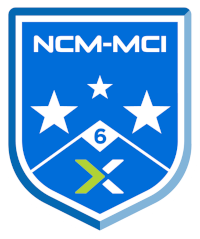On the two or three occasions I've used LogMeIn 'in anger' to remotely assist in resolving issues with friends computers, I've always had the same issue. Namely:
Is there a simple way to install a LogMeIn client and have it automatically point to my LogMeIn account?
The problem with the free LogMeIn client is that it's generic.
That is, it prompts the person installing the client for some LogMeIn account credentials. As we are talking about supporting friends remotely here, I've often resorted giving my LogMeIn account credentials out to so that friends can install the client on my behalf. At that point I can then access their machines remotely and (hopefully) fix the issues - happy users all round.
Surely there must be a way to embed LogMeIn account credentials into the installer and then make that installer available as needed.
Well it turns out there is, it can be done with free utilities and here is how you do it:
Requirements
A LogMeIn account. A free account can be created here
You will need to download the following. Save all files into a temporary folder EG: C:\Logmein
[Links updated 28/09/2010]
So you've got a working client that you now need to make easily available.
I suggest you create a free Google site and host it there. You will need to zip the LogmeInSetup.exe installer file first as you cannot host .exe files on Google sites.
See step 3 here for more on hosting files on Google sites.
Once uploaded, find the direct URL to the file. Typically the URL's are in the format:
To make the URL even simpler for friends to type, I suggest you use a URL shortening service such as bit.ly (bit.ly's not just for the twitterarti you know!). The good thing about bit.ly is that you can create a custom shortened URL.
Say something like:
So now you have a custom LogMeIn client that even your mate Dave's mother-in-law can locate, download and install with minimal fuss.
- Chris
Is there a simple way to install a LogMeIn client and have it automatically point to my LogMeIn account?
The problem with the free LogMeIn client is that it's generic.
That is, it prompts the person installing the client for some LogMeIn account credentials. As we are talking about supporting friends remotely here, I've often resorted giving my LogMeIn account credentials out to so that friends can install the client on my behalf. At that point I can then access their machines remotely and (hopefully) fix the issues - happy users all round.
Surely there must be a way to embed LogMeIn account credentials into the installer and then make that installer available as needed.
Well it turns out there is, it can be done with free utilities and here is how you do it:
Requirements
A LogMeIn account. A free account can be created here
You will need to download the following. Save all files into a temporary folder EG: C:\Logmein
[Links updated 28/09/2010]
- Inno Setup quick start pack from innosetup.com
- AddWinUser.exe from
herehere - LogmeInSetupGeneric.iss from
herehere - A copy of the generic free LogMeIn client from the LogMeIn website or here
- Install Inno setup quick start pack, ensuring that you also download and install ISTool, Inno setup preprocessor and encryption support (these are downloaded and installed as part of the quick start pack installer)
- Launch Inno Setup Compiler and open LogmeInSetupGeneric.iss
- Look for #define FilesDir "D:\Download\LogmeinSupport" [line 34] and change the the path to match the folder created above. EG: #define FilesDir "C:\Logmein"
- Change #define MyEmail "[email protected]" [line 36] to match your LogMeIn login account email address
- Change #define MyPassword "myaccountpwd" [line 37] to match your LogMeIn account password
- Change #define UserPassword "userpwd" [line 38] to something you'll remember. (This password will only apply if the machine and user account session you are accessing remotely doesn't already have a windows logon password)
- Change Password=1234 [line 66] to set a password on the installer. You don't want just anyone installing your custom LogMeIn client do you? I suggest something simple-ish as the person installing the client on your behalf will have to enter this
- Save your modified LogmeInSetupGeneric.iss
- Compile; Click Build and Compile
- If all is OK, the installer will then create a LogmeInSetup.exe installer file in your temporary folder created above and launch the installer for testing
- Test the client and ensure that the newly installed client shows up in your LogMeIn account.
So you've got a working client that you now need to make easily available.
I suggest you create a free Google site and host it there. You will need to zip the LogmeInSetup.exe installer file first as you cannot host .exe files on Google sites.
See step 3 here for more on hosting files on Google sites.
Once uploaded, find the direct URL to the file. Typically the URL's are in the format:
http://sites.google.com/site/[username]/[foldername]/[filename].zip
To make the URL even simpler for friends to type, I suggest you use a URL shortening service such as bit.ly (bit.ly's not just for the twitterarti you know!). The good thing about bit.ly is that you can create a custom shortened URL.
Say something like:
http://bit.ly/mylogmi
So now you have a custom LogMeIn client that even your mate Dave's mother-in-law can locate, download and install with minimal fuss.
- Chris









